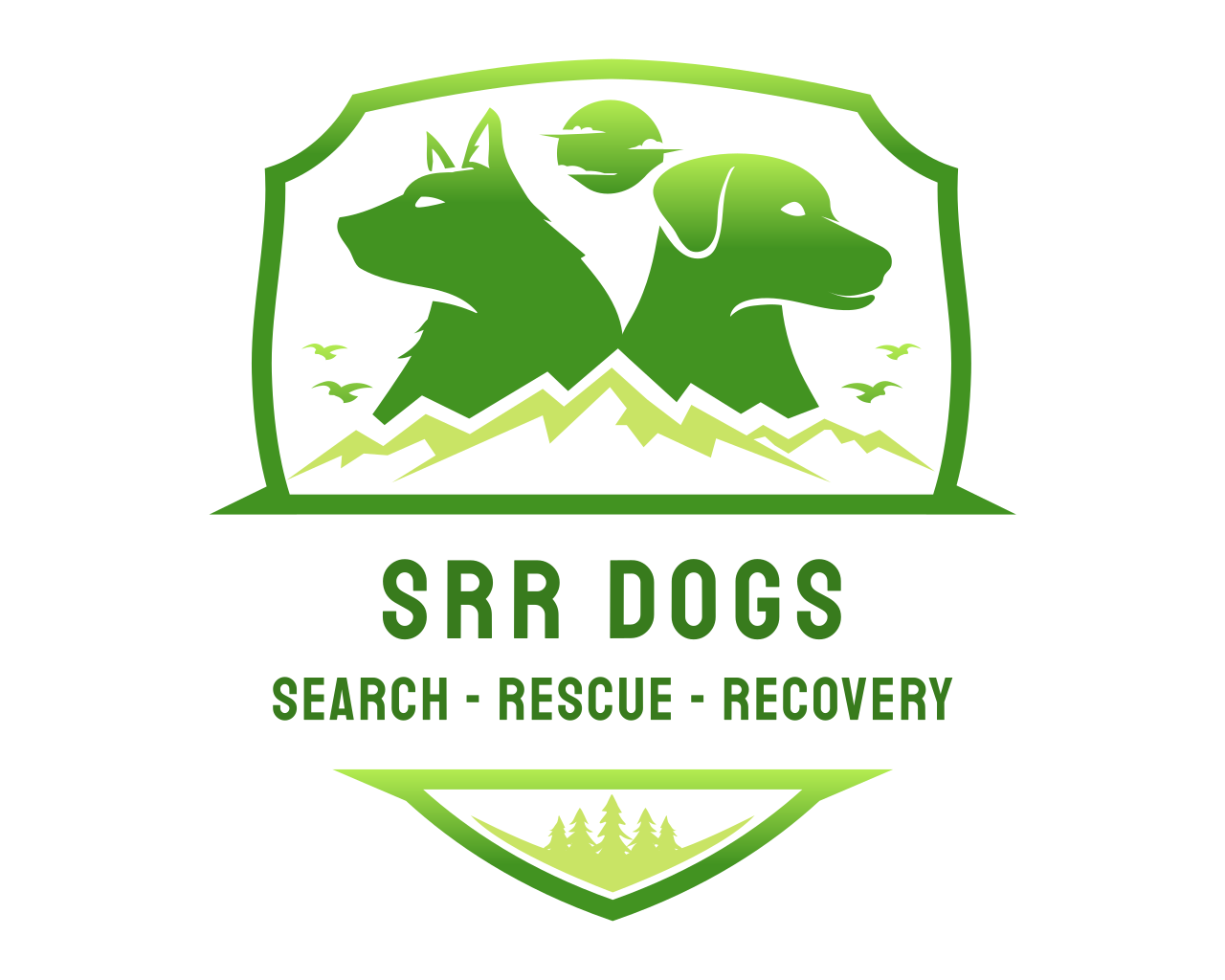Dog and volunteer training
General:
Training is essential not only for our dogs, but also for all our volunteers. As a team we find ourselves in the most diverse situations where we have to be able to rely on each other and our dogs.
This trust is built by training and learning together to be as prepared as possible for situations we may encounter.
Training the dogs:
We train our dogs for employability. For us, this means that we make conscious choices about what we do and do not train our dogs on.
With every part of the training we ask ourselves 'does this help the dog and us to be more employable'.
Being deployable means that we can search for missing people with our dogs in a way that has the greatest chance of success.
Search therefore plays the largest role in this. For example, dogs are trained to search for people in monkey areas, forests, under rubble or in the water. For all these variants we make a distinction between searching for living people or people who have died.
For dogs that only search for life, it is important to be deployed as quickly as possible. If the chance of survival is no longer there or it is assumed that this chance is very small, dogs can be used to search for dead air. This can happen for a very long time after the person has gone missing and in many scenarios.
Some of our dogs refer to both live and dead scents. However, these will not be the first dog used to search for survivors under rubble after, for example, an earthquake. In this situation we are convinced that the handler cannot be 100% sure whether the dog is referring to living or dead, while this cannot be directly checked visually.
Depending on the specialty of the dog, the search may include:
- alive search plain alive search rubble dead search plain dead search rubble dead search watermantrails
Every discipline can be of great added value in cases of missing persons.
In addition to training for search work, every dog must be under the supervision of his or her handler. By this we mean that the dog is under the control of the owner when he works loose (without a leash). The dog must therefore obey when called, must stay with its owner when asked and must remain in place in certain situations if the handler asks this.
Furthermore, it is very important that the dog does not show aggression towards people and animals.
We currently train our dogs to our own training requirements. Because we think it is important that we do not certify our own dogs, we are in the process of having certification done by an independent person / party.
Training of the volunteers:
SRR DOGS wants to distinguish itself by training and certifying not only dogs, but also volunteers. It is important to us that every volunteer can do her or his work safely and with the right knowledge and skills. This continues as a first aid and compass reading course. We aim to train and certify all our volunteers who are actively involved in search operations at least to the level of SARTECH III of NASAR (National association for search and rescue) in America.




